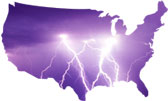Two hundred-odd years ago, on his way out of office, George Washington famously advised his successors to avoid entangling alliances with foreign nations. That was in 1796 — pre-NAFTA, pre-International Monetary Fund, and pre-globalization, not to mention pre-Darwin, pre-internal combustion engine, and pre-Republican Party. Hell, back then, all of Texas was still ruled by Spain.

In the 18th century, Washington’s advice might have been sound. But in the 21st, the United States can’t avoid entanglement: Our T-shirts come from Taiwan, our PCBs drift toward Africa, California-based corporations do business in Djibouti, and policy made in D.C. affects people in Palestine.
All of which leaves the current President George entirely unmoved. Ever since taking office, he has not merely avoided but actually undone foreign alliances, entangling or otherwise. Take his decision to withdraw from the Kyoto Protocol on climate change. The U.S. generates fully 36 percent of the industrial world’s greenhouse gas emissions, yet it is almost alone among industrialized nations in not ratifying Kyoto.
Bush’s attitude toward climate change amounts to an abdication of responsibility, a kind of modern-day Let Them Eat Carbon. But when you drop the ball, someone else is bound to pick it up: As the nation’s leadership actively eschews alliances (except with industry), the nation’s people are busy forging them. In dorm rooms and boardrooms, in city halls and houses of worship — all across the country, a grassroots network of activists is implementing the best maxim the environmental movement ever coined: They are thinking about global climate change, and combating it locally.
Case in point: Earlier this summer, the California legislature passed a landmark law requiring dramatic cuts in carbon dioxide emissions from vehicles. The Bush administration, which is in bed with every relevant industry from auto to oil, wouldn’t have touched the legislation with a 10-foot pole, but California’s courage could change the way cars are made in our nation.
The California example is the biggest and boldest, but other, more modest climate change initiatives are springing up all over the country. Their collective impact might not be enough to stabilize the global climate, but it just might be sufficient to enact a fundamental power shift: raising public awareness, making climate change a key political issue, catapulting proactive candidates into office, and ousting do-nothing incumbents. It might also augur another kind of power shift — from dependence on energy sources that pollute our environment and alter our climate to a nation powered by clean energy.
In this special edition, Grist looks at efforts to combat climate change in the absence of federal leadership:
- Katherine Ellison, an author and Pulitzer Prize-winning journalist, examines the origins and implications of the trend toward local climate change initiatives.
Speak truth to power. Send us a letter.


